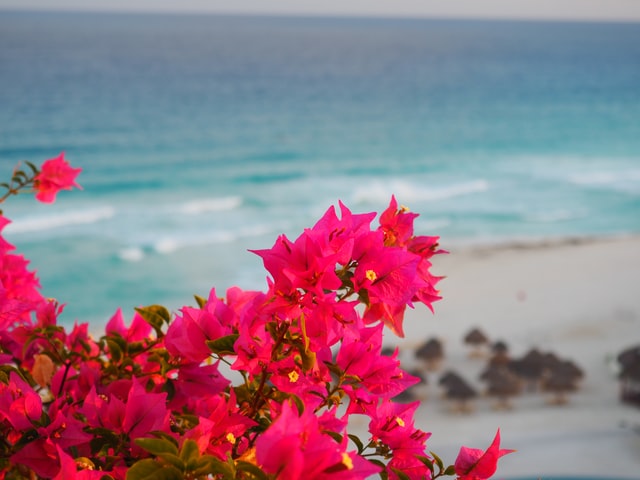An Aid Worker’s Story: From Hopeful Millennial to Jaded Nomad

Cardboard rocket ships, home-made science projects, and hunting for artifacts Indiana Jones-style filled my afternoons growing up. So naturally, when the time came to declare a college major at 18, I was a bit stumped.
Knowing that the world would not wait for me to find the perfect career fit, I made a bold attempt to be decisive (something that is very unnatural for me). One thing led to the next and eventually I chose to major in Sustainability, which led to a life-changing study abroad program in Australia and Fiji. Studying abroad introduced me to new cultures, global issues, exotic food, and a foreign guy.
Despite my interest in environmental science, all I really wanted to do was expose human rights violations like blood diamonds and child soldiers in Sub-Saharan Africa. Since that vision was broad and I wasn’t quite sure how to define it, I just boarded a plane across the world with 30 other bright-eyed college students to study Climate Change.
I was so sure I was going to East Africa to do good, and that my studies had equipped me with the scholarly skills to analyze and create solutions for complex international development problems.
During the trip I visited a village clinic in Fiji with dirty floors, no doctors, and nothing sanitary in sight. As I walked past the stoop with dried blood that had become a permanent fixture, I decided to add “Global Health” as a minor to my degree and a focus in my life.
I thought about how incredible it was that this community still had hope, despite their lack of access to quality healthcare and economic opportunities. I was mesmerized by the friendliness of the locals, and I was enthralled by the warm (though perhaps staged) ceremonial welcome we received.
We all sat in a circle on the straw floor passing around a bowl of Kava, a local plant that is pressed into water to make a tea-like substance. After a few celebratory bowls, I started to understand what the women meant when they complained about their husbands wasting away on the drink.
When I arrived to the thick dirt, pesky mosquitos, prominent corruption, and ancient misogyny, my optimism quickly evaporated under the harsh Ugandan sun.
I slowly started to feel the familiar buzz of a few beers, mixed with the fog of marijuana. In a hopeful haze, I began to daydream. I recounted the romantic dates I had with an Aussie who lured me in with his kind smile and accent in Sydney a week prior.
We did that thing where you kiss goodbye and stare into each other’s eyes longingly after a vacation fling. We exchanged contact information, then carried on with our lives on different continents. But at some point, our occasional check-ins became daily and I realized he was the one I texted about the exciting and mundane details of my life.
Meanwhile, I still had classes and my job to attend to. I devoted myself to maintaining my grade point average and a healthy social life, while indulging in my not-so-secret “thing” with the Aussie abroad.
As my senior year was coming to an end, I felt the weight of the future crushing me. It was as if the ‘American Dream’ was directly contradicting my own dreams.
Then, as I assume many other almost-graduates do, I panicked. I was nowhere near ready to start my career at 21. I certainly was not ready to take on a 9-5 in Corporate America. So, I applied to the Peace Corps and grad school. The obvious next step for a young graduate without a clue but with a burning desire to make a difference.
I shut up and held my peace. I observed, and wrote down the things I could not say.
When my acceptance letter came from the University of Sydney for a Master’s program, I didn’t think twice about the decision to leave my life behind to continue my education in Australia. I was also eager to pursue the possibility of love with my “Aussie fling.”
The Aussie and I went through a rollercoaster of emotions as our relationship played out. But no matter how strong our feelings were in the best of times, things like visas and job opportunities quickly shifted to the forefront of every conversation.
Then an opportunity presented itself to volunteer at a small nonprofit organization in Uganda during my winter break. I was so sure I was going to East Africa to do good, and that my studies had equipped me with the scholarly skills to analyze and create solutions for complex international development problems.
I was determined and hopeful that I, a young and optimistic international aid worker, could make a difference. Which is why, when I arrived to the thick dirt, pesky mosquitos, prominent corruption, and ancient misogyny, my optimism quickly evaporated under the harsh Ugandan sun.
I spent days planning English and family planning lessons for women who showed up in beautiful handmade garments, with babies swaddled upon their back, and secured with a knot in front. Behind their pearly white smiles were devastating realities. Some women even begged me to take them to America, claiming they would do anything for a way out, including leave their children behind. A lump grew in my heart every time a woman confessed her tale of abuse, forced pregnancy, or infection from secret birth control implants.
I realized I didn’t have time for love. Love, for me, felt like a distraction, like a luxury I could afford myself once I had figured the rest out.
I wasn’t allowed to talk to the men in the village, and talking to the women was hard enough with the language barrier. But the divide was clear. A wall had been built and reinforced in their culture about the worth of a woman, and there was nothing I could do to change that. I was on the other side of that wall too. My words fell on deaf ears as I tried to discuss the concept of multiple wives and lack of women’s rights with my male drivers and tour guides.
So I shut up and held my peace. I observed, and wrote down the things I could not say.
My last few days in Uganda I spent caring for disabled children who ate, slept and defecated on the same cement floor. These children had been abandoned by their families who didn’t understand their disabilities, and assumed they were cursed. The organization did the best they could to provide love and care for them and the other orphans, but they were simply underfunded and understaffed.
Uganda was the first time I truly felt alive yet simultaneously jaded. I spent my nights jotting down the stark realities I witnessed of poverty, gender inequality, and my internal battles with my purpose in the world.
I realized I didn’t have time for love. Love, for me, felt like a distraction, like a luxury I could afford myself once I had figured the rest out. So the Aussie and I parted ways, and I shifted gears.
Eventually, grey became the only color I could see in the multi-colored sky.
I moved to Peru to try a new tactic of empowering communities by teaching English. There I realized I was only making a small dent by providing a service to middle-class Peruvians, even though I aimed to serve the communities that were the most in need of help. When my contract ended, I packed my bags and was off to my next adventure as quickly as I had begun the previous one.
The next few years, I spent working for international organizations in Tanzania, New York, and Kenya. Tanzania came with a whole different set of disappointments, coupled with beautiful landscapes and endangered animals. The land was lush and fertile, and the organization was much more organized and purposeful than those I had encountered before. I grew to care for the girls in the refuge, and there were tangible positive outcomes that stemmed from the programs. Even so, bureaucracy and corruption lurked around every corner, until eventually, grey became the only color I could see in the multi-colored sky.
When I left Tanzania, I knew I couldn’t go through it again, at least not right away, and definitively not so far from my support system. I decided some stability and planting roots in the U.S. might be in order. I moved to New York to teach English to small groups of inner-city 7th graders in Downtown Brooklyn. That stint quickly became disheartening, too.
Eventually, I stumbled upon my last job working for an international nonprofit, while I spent time getting to know Africa’s largest slum in Kenya. All I will say about that experience is that coinciding with the presidential election, it was enough to deplete my reservoir of hope, optimism, and general motivation to follow my existing career path.
An Aid Worker’s Story: From Hopeful Millennial to Jaded Nomad.
I quit knowing that my next steps would be unclear. I quit not evening caring if I was a failure, or how it would be perceived. I quit because my body didn’t give me any other choice.
I packed my bags once again, but this time, I didn’t try to go to some far away land to “help” anyone. I backpacked around Asia, and I did it for me. I needed time to recover, time to recoup my hope in humanity and shrink the disillusioned lump in my heart.
I set off on a two month journey around eight countries, without a plan or a large bank account. I remembered what it means to travel with an open-mind and a curious heart. I allowed myself to take in the lessons the world had to offer, and I soaked up what the locals and other backpackers could teach me. In short, I re-found my peace and even picked up some newfound zen along the way.
Coinciding with the presidential election, that experience was enough to deplete my reservoir of hope, optimism, and general motivation to follow my existing career path.
I recalled my inspiration for getting into this kind of depressing aid work in the first place, and I realized I needed a new approach. That’s where the revelation came in.
There is no cookie-cutter way to help people or make a positive difference. There are so many approaches to community service work, and to be successful I needed to re-evaluate what I am good at and what makes me happy. Like many other millennials, I now want to try using the tools fresh to my generation of dreamers, with internet and technology at our fingertips. I want to harness the powerful combination of storytelling, social media, and optimism. I want to inspire other millennials to travel with a purpose by documenting my adventures and volunteering along the way. In order to accomplish all of that, you will soon find me living in a van full-time and traveling the United States to visit all 59 National Parks.
I know that it is easy to write off millennials as lazy, entitled, or unmotivated. But I am here to say that my story is not one that can be easily summed up with stereotypes. I may lose my way sometimes, but I always have a direction.
Photo for An Aid Worker’s Story: From Hopeful Millennial to Jaded Nomad by Unsplash.









Thanks for sharing your amazing story. Aid workers work in a high risk environment. And working in a foreign environment can often be a quite a strange experience. My sister believes in the organization like mission humanitiare (http://www.mission-humanitaire-afrique.org), who works for the social welfare and also suggested me to join as a volunteer to contribute to aid the needy people.
Amazing life experiences. Congratulations for having the courage to follow your dreams wherever they may lead. Happy travels!